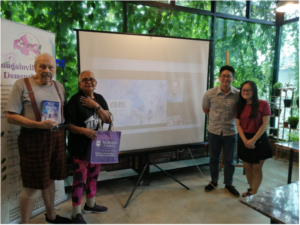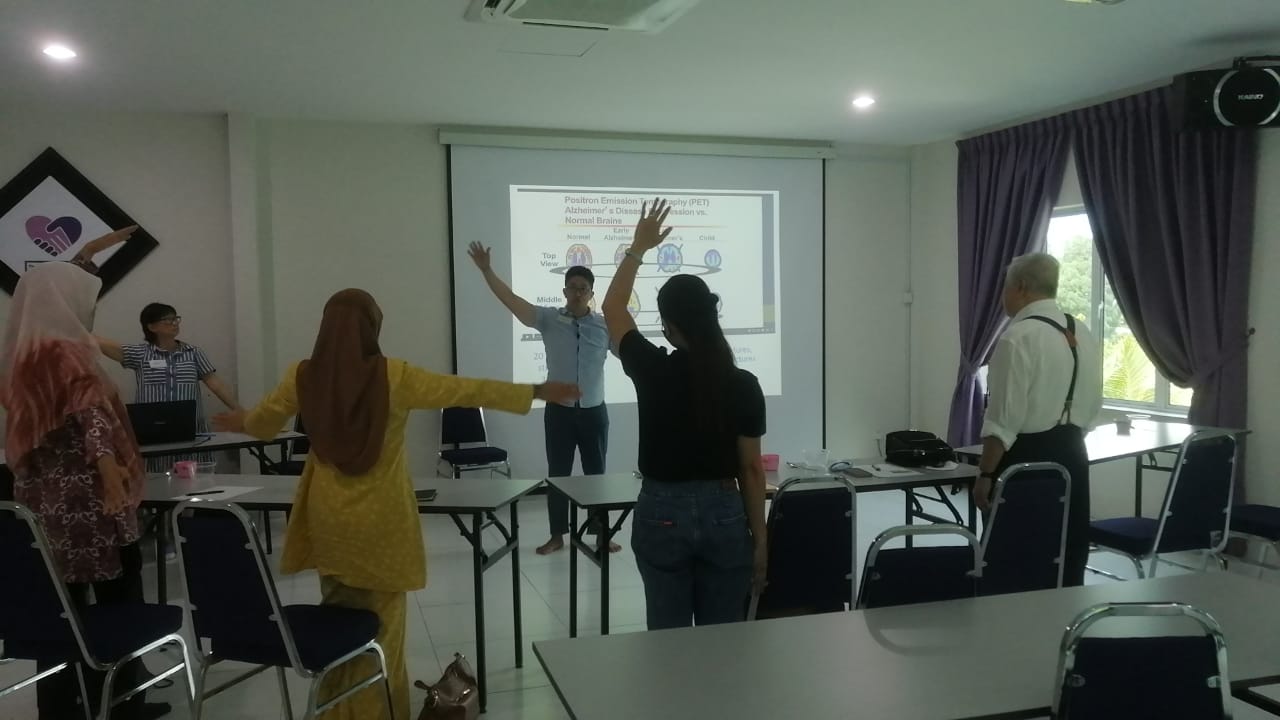An interview with Calvin Chong: ADHD/Autism as a superpower for Care on November 22, 2023 by George Ackerman, Ph.D, J.D.

Please tell me a little about your background.
I am a psychologist (HR) in Malaysia. I have been working with PLWD for almost 7 years. I am currently a Montessori practitioner in Activities for PLWD and a trainer for the PAC by Teepa Snow for people living with brain change.
Can you tell me more about your organization?
I am a Trainer for the Postivie Approach to Care by Teepa Snow
What is your passion and how did you get involved in Parkinson’s awareness and hope for a cure?
I am ADHD/autistic on the spectrum and being born with this condition allows me to relate, connect and understand very well with PLWD and PD feel when it comes to care. I am currently on a mission to share and encourage the younger generation who are on the spectrum to learn skills in giving care.
During my time working with PLWD I have met and connected with many people living with Parkinsons. When I learned that people living with Parkinsons develop dementia the longer they live it was devastating knowledge to me, but despite that I do know and have worked hand-in-hand with families who are still able to provide care in ways that can enrich both the person and the caregivers.
What type of goals do individuals with Parkinson’s have when working with you?
My goals are connecting with people living with PD as understanding the person and the disease. To focus the blame and guilt on the disease and appreciate, relate and motivate the person living with PD in activities and in daily care.
What type of goals do individuals with Parkinson’s have when working with you?
I use the Positive Approach to Care by Teepa Snow, in building new skills and knowledge for myself and the caregivers for people living with brain change and that includes PD. I also connect with the people with Parkinsons so that they can prepare can share what kind of care they would like to be involved together.
What effect can it have on an individual with Parkinson’s?
By learning to build new skills with the caregivers of people living with PD, they can start to focus on the person not the disease. Too often it is so easy to blame the person for the challenges in care.
What would you like to see as a future goal for your programs?
To inspire and educate more younger people both on the spectrum and typical especially in their 20s working in the health sector in knowledge of dementia and dementia related diseases including PD and how to approach it in a positive manner.
What events do you participate in?
I conduct my own training workshops with my partners Emily and Jasmine who are also on the spectrum. We want to learn and share together with the community here in Malaysia.
How does this also assist the caregivers?
By removing the stigma attached to dementia here in Malaysia by awareness. Talking individually to each of the families one at a time will bring better changes in the future.
How can someone get in touch? What is your website?
We can be reached for now through email and are currently building a website.
(calvinchongcaywern@yahoo.com) and (emilywpy.16@gmail.com)
We also have a FB presence at https://www.facebook.com/groups/3516060658667079/
How can others also become advocates for awareness?
It takes one to share with another. By learning that how we wish others would care for us, only then can we help change the perspective on how people can care in such diseases in dementia.
In your opinion what is the key to effective advocacy?
Awareness is the key to advocacy. 1/5 families have loved ones living with dementia. As the coming years are approaching it is bound to increase. Removing and changing the stigma now in dementia including PD will lead the way for how the future generations can make the change.
What other activities do you undertake to help improve and support your daily living Eg exercise and alternative remedies?
Exercise, having a good social support group and the feeling of being supported makes all the difference.
Why should people who don’t have Parkinson’s care about this?
Care is a community effort. We live in a community. It is not about who has Parkinsons and who doesn’t. It is about how we support each other with what we have and what we can.
Have you had any family members or relatives affected by Parkinson’s disease?
No
How can we better fundraise to support a cure for Parkinson’s?
Fundraising helps those in need now, government and community support will help everyone who is giving care for those with their loved once having PD.
If you had one final statement or quote you could leave for the Parkinson’s community, what would it be?
It is possible to both the caregiver and the person living with PD to lead meaningful lives. I have seen it happen before; it can happen again. It all starts from one family, one person.
If you had one song that would tell us more about you or represent your life which song would it be?
Utada Hikaru (One Last Kiss).

